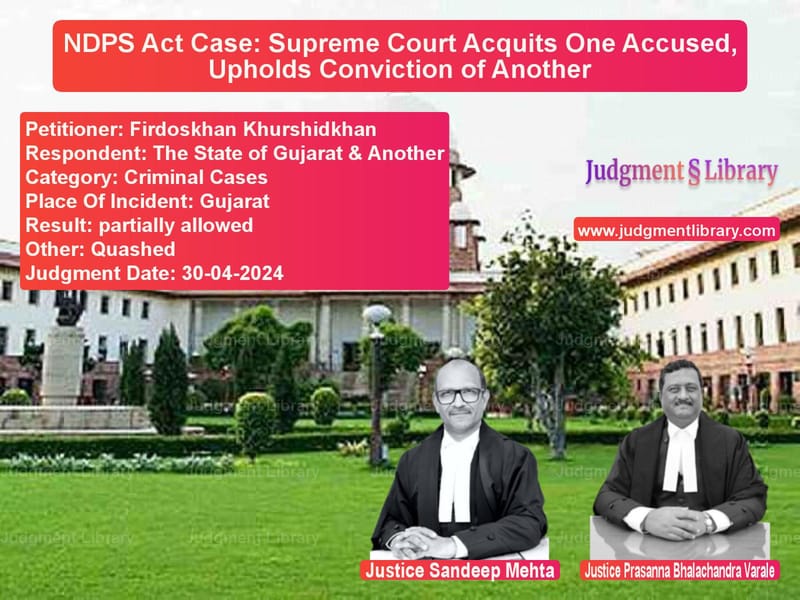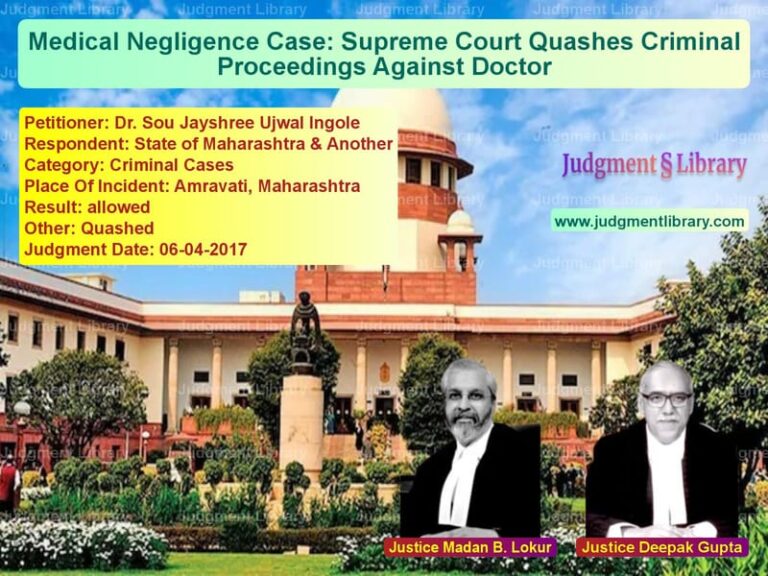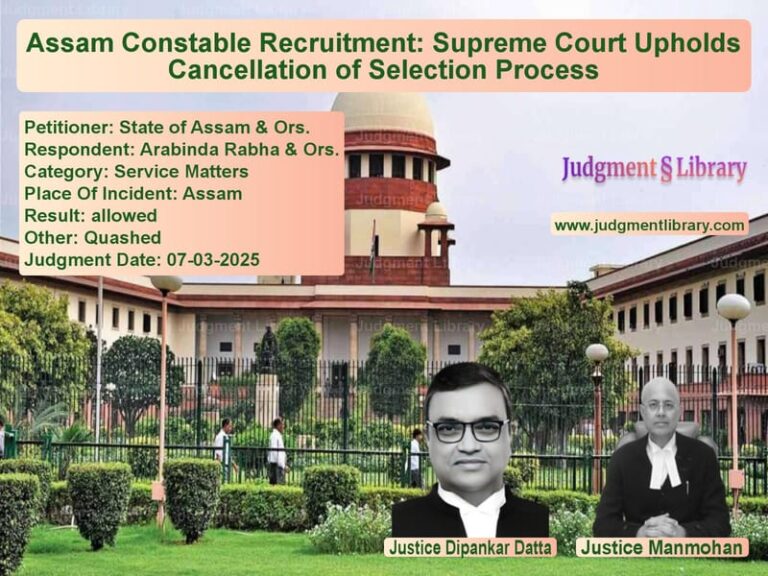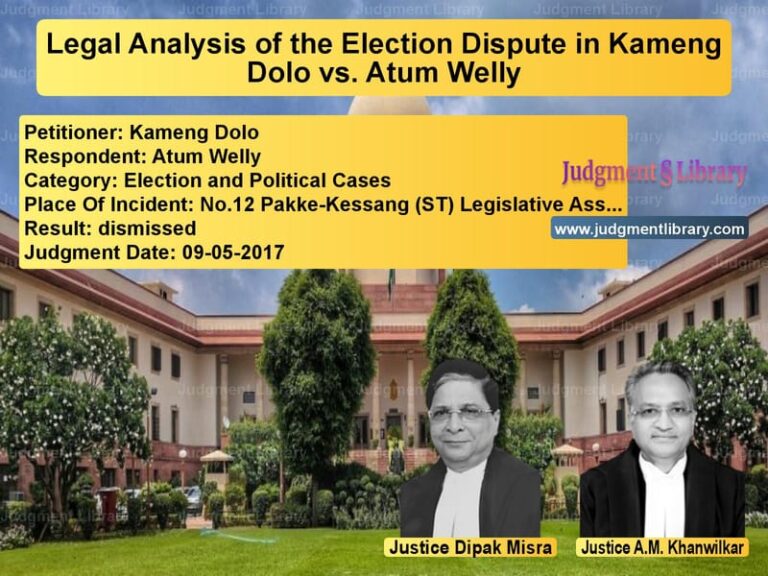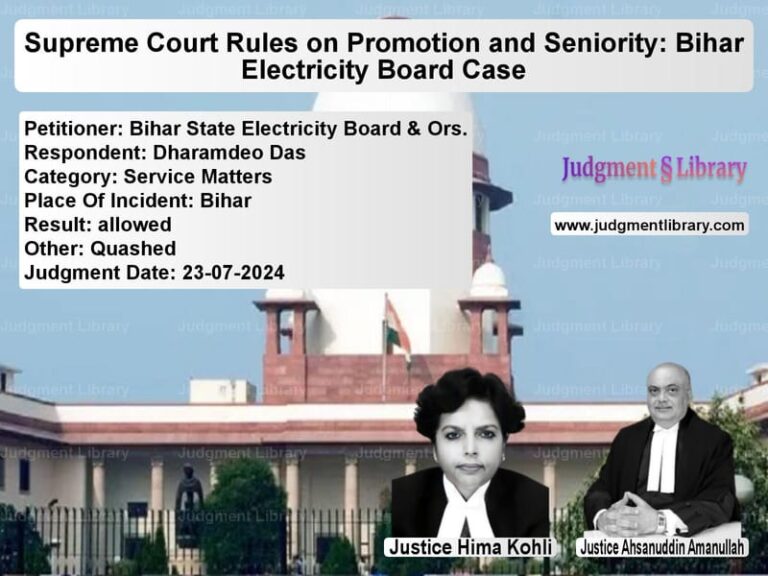NDPS Act Case: Supreme Court Acquits One Accused, Upholds Conviction of Another
The case of Firdoskhan Khurshidkhan vs. The State of Gujarat highlights key legal principles under the Narcotic Drugs and Psychotropic Substances (NDPS) Act, 1985. The Supreme Court was called upon to determine whether the convictions of two accused individuals—Anwarkhan Jahilkhan Pathan and Firdoskhan Khurshidkhan—were legally sustainable in light of procedural violations and evidentiary gaps.
Background of the Case
On January 30, 2003, the Narcotics Control Bureau (NCB) received secret information that two individuals would deliver a narcotic substance at the ST Bus Stand in Kheda. The raiding team, consisting of NCB officers and panch witnesses, reached the location and spotted two individuals, one of whom was holding a bag. As the officers closed in, one individual, later identified as Anwarkhan, was apprehended with a bag containing two polythene packets of heroin/brown sugar weighing approximately 2 kg and 30 grams. The second individual, alleged to be Firdoskhan, managed to escape.
Later, based on information received from Madhya Pradesh police, NCB officials claimed to have identified and arrested Firdoskhan. Both accused were charged under Sections 21, 8(c), and 29 of the NDPS Act. They were convicted by the Trial Court, which sentenced them to ten years of rigorous imprisonment along with a fine of Rs. 1 lakh each. The Gujarat High Court dismissed their appeals, leading to the present appeals before the Supreme Court.
Arguments by the Petitioner (Accused)
- The secret information was not properly forwarded to senior officials as required under Section 42(2) of the NDPS Act, making the search and seizure illegal.
- The accused were not informed of their right to be searched in the presence of a Magistrate or a Gazetted Officer, violating Section 50 of the NDPS Act.
- The prosecution failed to include independent witnesses during the raid, making the case unreliable.
- The identification of Firdoskhan was questionable as no Test Identification Parade (TIP) was conducted.
- The prosecution relied heavily on the statements recorded under Section 67 of the NDPS Act, which the Supreme Court had ruled as inadmissible in its landmark judgment in Tofan Singh v. State of Tamil Nadu.
Arguments by the Respondents (Prosecution)
- The prosecution contended that an independent witness was present, as Manubhai, a government servant, was one of the panch witnesses.
- Since the accused was caught in a public place, the requirements of Section 42 did not apply.
- The seizure of the contraband was properly documented and the chemical analysis confirmed it as heroin.
- The second accused, Firdoskhan, was identified based on statements and circumstantial evidence.
Supreme Court’s Analysis and Judgment
The Supreme Court carefully examined the procedural lapses and evidentiary concerns in the case.
- The Court found that Section 50 was not violated because the seizure was from a bag and not from the accused’s person.
- Regarding Section 42, the Court noted that since the seizure happened in a public place, Section 43 applied, which does not mandate prior written approval.
- The presence of an independent witness was affirmed as Manubhai, a government employee, had testified.
- However, the Court ruled that the conviction of Firdoskhan could not be sustained because:
- His name was not mentioned in the initial seizure memo.
- No concrete documentary evidence showed that he was apprehended in Madhya Pradesh.
- The only evidence against him was the statement of the co-accused under Section 67, which was ruled inadmissible in Tofan Singh.
- The identification of Firdoskhan in court, two years after the incident, was unreliable.
Based on these findings, the Supreme Court upheld the conviction of Anwarkhan but acquitted Firdoskhan, giving him the benefit of doubt.
Conclusion
This judgment reinforces the importance of procedural safeguards in NDPS cases. While the Court upheld the conviction of one accused, it also ensured that an individual was not convicted based on weak circumstantial evidence and inadmissible statements. The ruling serves as a precedent for ensuring fair trials under the NDPS Act while maintaining a strict approach toward drug-related offenses.
Petitioner Name: Firdoskhan Khurshidkhan.Respondent Name: The State of Gujarat & Another.Judgment By: Justice Sandeep Mehta, Justice Prasanna Bhalachandra Varale.Place Of Incident: Gujarat.Judgment Date: 30-04-2024.
Don’t miss out on the full details! Download the complete judgment in PDF format below and gain valuable insights instantly!
Download Judgment: firdoskhan-khurshidk-vs-the-state-of-gujarat-supreme-court-of-india-judgment-dated-30-04-2024.pdf
Directly Download Judgment: Directly download this Judgment
See all petitions in Drug Possession Cases
See all petitions in Bail and Anticipatory Bail
See all petitions in Judgment by Sandeep Mehta
See all petitions in Judgment by Prasanna Bhalachandra Varale
See all petitions in partially allowed
See all petitions in Quashed
See all petitions in supreme court of India judgments April 2024
See all petitions in 2024 judgments
See all posts in Criminal Cases Category
See all allowed petitions in Criminal Cases Category
See all Dismissed petitions in Criminal Cases Category
See all partially allowed petitions in Criminal Cases Category

